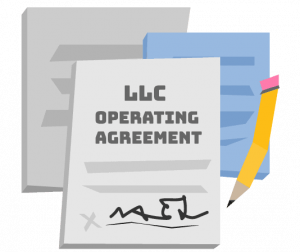Start a Business in Arkansas
Home to hot springs, diamond mines, and one of the most stable economies in the nation, Arkansas is a great state to start a business. But where to begin? It’s simple: sell something. As soon as you do, you’re a sole proprietor in Arkansas.
But, you may be thinking: How can I make money with my business? What should I do to protect that money? And what requirements do I need to meet to make sure my business abides by all applicable laws? In this comprehensive guide, we’ll show you.
When You Want More
$39 + State Fees
When we form your company, you get everything you need to start your business from scratch.
- Business Entity Formation
- Business Phone Service and Email Address
- Website and Web Hosting
- SSL Security
- Domain Name
- Privacy by Default®


1. Pick a Business Structure
The easiest way to form a business is to sell something. For example, if you design greeting cards and sell them online, you have a sole proprietorship. If you do so with other people, you have a general partnership. In either case, your business finances are the same as your personal finances. So if your business goes into debt, so do you.
The alternative is to create a business that’s an independent entity, separate from you and your personal assets. This will give you liability protection, so any business debt does not also become your personal debt. The most common entity types with limited liability are LLCs and corporations.
- Arkansas Limited Liability Company (LLC). In addition to offering limited liability protection, LLCs offer business owners a lot of flexibility, which can be helpful for small businesses. For example, you can choose to have your business run by a manager (or team of managers), or you can operate your LLC on your own. And when it comes to taxes, you have the option to be taxed as a general partnership or a corporation. To start an Arkansas LLC, you’ll need to file formation papers with the Arkansas Secretary of State.
- Arkansas Corporation. Corporations must follow strict rules when it comes to their business structure, including offering corporate shares, allowing shareholders to appoint board members, and board members to elect officers. Because corporations are accountable to their donors, investors, and shareholders, they must keep diligent records of their business activities. These rules help enforce strong liability protections. However, corporations also face corporate taxes, which can be steep. To form an Arkansas corporation, you’ll need to file paperwork with the Arkansas Secretary of State.
Can an LLC be just one person?
Yes! A one-person LLC is called a single-member LLC. Single-member LLCs are one of the most common kinds of businesses in the country. For the most part, single-member LLCs are just like multi-member LLCs, but there are some slight differences in how they file taxes and protect personal assets.
Read all about Single-Member LLCs.
What about an Arkansas nonprofit?
You can start an Arkansas nonprofit corporation if your business serves the public good (like an educational or religious organization), or benefits a group’s shared interest (like a community association). Businesses that qualify for nonprofit status benefit from significant tax breaks. Forming an Arkansas nonprofit corporation requires you to file Nonprofit Articles of Incorporation with the Arkansas Secretary of State.
For more, check out our Nonprofit Guide.

2. Name Your Business
When naming a business in Arkansas, you’ll have to follow the conventions of your business type.
If you have an LLC or corporation, your name must:
- Include a business entity identifier, like “LLC” for a limited liability company or “Inc.” for a corporation.
- Be distinguishable from other business names on the public record.
- Not use words like “police” or “department of state” that could confuse your business with a government agency.
- Not use words like “nonprofit” or “foundation” (unless your business is a nonprofit or a foundation).
- Not use words that falsely suggest your business offers a professional service, like “doctor” or “lawyer”.
You can check the Arkansas Business Entity Search to see if your desired name is available. If it is, you can register it when you file formation paperwork or file an Application of Reservation of Entity Name for $25 to keep the name on hold for 120 days.
If you’re a sole proprietor, this means you’ll use your own name for all business transactions—unless you register a DBA name for your business. A DBA, or a fictitous name, is any name other than your business’ legal name. All business entities registering a fictitious name in Arkansas must file an Application for Fictitious Name form with the Arkansas Secretary of State ($15-$25 depending on business type).

3. File Formation Paperwork
The good news about being a sole proprietor or a general partnership is you don’t need to file any paperwork with the state in order to be a business. This is because there’s no separation between you and your business. The bad news, of course, is you won’t have liability protection.
If you’re forming a separate business entity, like an LLC or corporation, you’ll need to file paperwork with the Arkansas Secretary of State. This is what makes your business official.
- To form an Arkansas LLC, file Arkansas Articles of Organization.
- To start an Arkansas corporation, file Arkansas Articles of Incorporation.
Whether you’re creating an LLC or a corporation, you’ll need to include the name and address of an Arkansas registered agent with your formation paperwork. Once you’ve crossed every ‘t’ and dotted every ‘i,’ you’ll need to send the completed form to the Arkansas Secretary of State. You can submit it online, by mail, or in person.
What is a registered agent?
An Arkansas registered agent is the person or entity responsible for receiving legal notices (known as service of process) for your business. While you can be your own registered agent in Arkansas, keep in mind that your registered agent must be available during regular business hours to accept these notices. Because service of process is time-sensitive and often very important, many businesses opt to hire a registered agent service as their business’s point of contact.

4. Draft Internal Records
So far in this guide, we’ve dealt with public forms that you’ve had to file with the Arkansas Secretary of State. Now, it’s time to organize your internal records. These are the documents your business will keep on record within your company.
Though these documents are internal, you’ll likely need to show them to third parties like the bank or—if you start a nonprofit—the IRS.
Here are the major internal documents you need to organize for LLCs and corporations:
Arkansas LLC Operating Agreement
This is your LLC’s rule book. It defines how your LLC will do things like make decisions, distribute money, manage operations, and appoint officers. Your operating agreement plans for every big picture scenario your LLC is likely (or unlikely) to face, including dissolution.
Drafting an operating agreement is hard, and the internet is full of shabby templates that have been copy and pasted from who knows where. So we had our attorneys draft an Arkansas LLC Operating Agreement template that you can use as a solid foundation.
Arkansas Corporate Bylaws
Bylaws are the rules your corporation will adopt and follow internally. Bylaws detail how your corporation will appoint directors and officers, hold shareholder and board meetings, and handle emergencies, among other things. Unlike operating agreements, corporate bylaws are required by law in Arkansas (AR Code § 4-26-809).
As with operating agreements, you can find plenty of bylaws templates online. But bylaws are pretty serious, so you don’t want to just use the first template you come across. Our attorneys drafted an Arkansas Corporate Bylaws template you can use to get started.
Starting a nonprofit? Learn about Arkansas nonprofit bylaws.

5. Get Arkansas Business Licenses
Most businesses will need some sort of license or permit to operate in Arkansas. Some businesses will need more than one.
- Arkansas Business License. Arkansas doesn’t issue a general business license at the state level. The closest thing to a state-wide registration requirement is Sales and Use Tax, which all businesses must sign up for through the Arkansas Department of Finance Administration.
- Industry License. Depending on the industry you work in, you might have to obtain a specialized license to operate your business. If you own a liquor store, for example, you’ll need to obtain an alcohol permit from the state. And if your business operates out of more than one location, you’ll need a license for each one.
- Professional Business Licenses. You’ll need a professional business license if you provide a service within an industry that’s regulated by a state licensing board. Such industries include architecture, dentistry, medicine, and law, among others (see AR Code § 4-29-202). To get a professional license, you have to meet the qualifications set by the state licensing board regulating your profession, then submit an application to that board.
- Local Business Licenses. There’s a chance you’ll need to obtain a business license from your local municipality. For example, Little Rock requires all businesses within city limits to obtain a business license, while smaller cities like Hot Springs do not.
Learn more about How to Get a Business License.
How do I get an Arkansas business license?
For industry-specific licenses, you’ll need to check with the licensing authority. For example, to get a liquor permit you’ll apply through the Alcohol Beverage Control Division, and if your business requires a working kitchen you’ll need to make sure your space is inspected by the Arkansas Department of Health. All businesses will also have to register for Sales and Use Tax through the Arkansas Department of Finance and Administration.
How much does it cost to get an Arkansas business license?
Business licenses and permits can range from $40 to over $1,000. It depends on the type of license or permit you need.
How do I get a professional license in Arkansas?
The process for getting a professional license in Arkansas depends on your profession. For example, medical physicians are licensed by the Arkansas State Medical Board while chiropractors are licensed by the Arkansas State Board of Chiropractic Examiners. Each board is usually made up of experts in their field appointed by Arkansas’s governor.
How do I get a local business license?
You’ll have to contact your local city and/or county to find out what license(s) you’ll need to operate in your jurisdiction. The application process will vary by location. Use the state’s Local Government Portal to search for the requirements in your area.

6. Organize Your Money
The liability protection you get from forming an LLC or corporation is only as strong as the separation between you and your business. At a minimum, you’ll need to open a bank account for your business. And if you’re going to hire employees, you’ll need to tackle payroll, too.
Open a Business Bank Account
To keep your business spending separate from your personal spending, you’ll need to open a business bank account. If you don’t, a court could find that your business is not actually separate from you, the owner, under the Alter Ego Doctrine. Also known as piercing the corporate veil, this is the outcome when a judge finds that a company is not a separate entity but rather an alter ego of the owner. If this ever happens, you could lose your limited liability status.
Opening a business bank account as a sole proprietor is important, too. Though sole proprietors and general partnerships have no limited liability status to protect, both will benefit from organizing their business finances come tax season.
Set up a bank account by providing your:
- Formation documents
- Operating agreement or corporate bylaws
- EIN
- Corporate Resolution to Open a Bank Account or LLC Resolution to Open a Bank Account.
Set up Payroll
You’ll need to set up payroll for your company if you’re planning to hire employees or independent contractors. This will require you to:
- get an EIN
- register with the Arkansas Department of Finance and Administration
- find your Employer Unemployment Insurance (UI) Contribution Rate
- decide whether to hire employees or independent contractors
- prepare forms for your employees to complete
- choose a payroll service or software
- decide on a payroll schedule
Setting up payroll in Arkansas can be complicated, but it doesn’t have to be. Using a professional payroll service or software will withhold payroll taxes, file state and federal returns on your behalf, and pay your employees (by check or direct deposit)—all automatically.
What forms do my employees need to fill out?
Your new employees will need to fill out a W-4 to determine how much you’ll withhold and an I-9 to verify that the employee is eligible to work in the US.
What’s the difference between an independent contractor and an employee?
It’s important to understand the difference between an independent contractor and an employee. That’s because for employees, you’ll need to withhold and pay income, social security, and Medicare taxes. Independent contractors pay these taxes on their own.
An independent contractor is self-employed—how they complete their work is not directly controlled by an employer. An independent contractor may perform the same kind of work for other businesses, and can do the work when and how they choose.
An employee, on the other hand, performs their work how and when their employer chooses.
If you’re unsure, you can file Form SS-8 with the IRS and let them decide.
Learn everything you need to know about hiring independent contractors.
How do I register with the Arkansas Department of Finance and Administration?
You can register with the Department of Finance and Administration online through the Arkansas Taxpayer Access Point. Or, you can submit Form AR-1R by mail. When you register, you’ll also receive your business’s Employer Unemployment Insurance (UI) Contribution rate, which you’ll need to set up payroll.

7. Get Business Insurance
Forming an LLC or corporation protects your personal assets. But if anything disastrous befalls your business—like a lawsuit, burglary, flood, or fire—your business is on the hook to pay. Business insurance can help cover the costs.
But, in most cases, whether or not you decide to get business insurance is up to you. Depending on the structure of your business, you may be required to obtain some coverage for your business in Arkansas. But adding additional coverage will depend on how much risk you’re willing to take.
Here are the most common types business insurance in Arkansas:
Workers’ Compensation Insurance
If a worker is injured on the job, Arkansas workers’ compensation insurance provides automatic assistance when it comes to medical expenses and lost wages. If your business includes three or more employees or has a payroll exceeding $20,000, Arkansas law requires you to purchase workers’ compensation insurance from a commercial carrier or through a self-insurance program (if approved by the state). There are a few professions that aren’t covered by the state’s workers’ compensation laws, including: agricultural farm labor, domestic help, and jobs provided by nonprofits, charities, religious institutions or relief organizations. Otherwise, the vast majority of workers in Arkansas should be covered by Workers’ Compensation Law.
Do business owners need workers’ compensation insurance in Arkansas?
While your employees must be covered by workers’ comp, Arkansas law does not require you, the employer, to purchase workers’ compensation insurance for yourself. That said, it’s a good idea to include yourself in your business’s workers’ compensation policy.
Liability Insurance
This covers the costs of claims against your business for injuries or damages to the property of others, like clients or customers. This includes medical expenses, legal fees, settlements, and judgments. Whether or not you need it depends on whether your business is likely to be sued and how many assets your business needs to protect. If it’s just you and your computer in your basement, you might feel comfortable skipping liability insurance. Or maybe you won’t. Beyond general liability insurance, you can purchase or add on more specific types, like professional, cyber, commercial, home-based business, or product liability insurance.
Do I need business insurance for my home-based business?
Probably. That’s because you can’t count on your homeowners’ or renters’ insurance policy to cover damages related to your business. Most insurance companies offer a home-based business insurance plan.

8. Understand Your Tax Burden
Arkansas ends up somewhere in the middle when it comes to state tax obligations. While its state-wide sales tax is relatively steep at 6.5%, the state’s personal and corporate income tax rates hover around the national median. But beyond your state tax obligations, you’ll also have federal and local taxes to consider.
Federal Taxes
- LLCs. Single-member LLC? By default, you’re taxed similar to a sole proprietor. More than one LLC owner? You’re taxed as a general partnership. Either way, your default tax status is “pass-through,” which means you don’t pay corporate taxes. Instead, your LLC’s owners report profits and losses on their personal tax returns. An LLC can file paperwork with the IRS to be taxed as an S-Corp or C-Corp instead.
- Corporations. Corporations are taxed as C-Corps by default. This means that corporations pay the 21% federal corporate tax rate and the applicable Arkansas corporate tax rate.
To pay your federal taxes (and take a good deal of other steps required to start a business), you’ll need to get an Employer Identification Number (EIN). You can apply for one with the IRS or hire us to get one for you.
Do I need an EIN if I’m self-employed?
If you’re operating a sole proprietorship or single-member LLC that doesn’t employ anyone else and you don’t need to file excise or pension plan returns, you don’t legally need an EIN.
However, you can still get one—and you probably should. Otherwise, you’ll have to use your own social security number to do business. Plus, you’ll likely need an EIN to open a business bank account.
How do I get an EIN?
To get an EIN, you can either apply online or file form SS-4 by mail with the IRS. Getting an EIN is free.
Check out our guide to applying for an EIN.
What is an S-Corp?
An S-Corporation is a federal tax election. Registered business entities like LLCs and corporations start out with a default tax status, but can file paperwork with the IRS to be taxed as an S-Corp. Like LLCs, S-Corps are taxed as pass-through entities. Like corporations, S-Corps can make distributions that aren’t subject to the 15.3% self-employment tax.
Learn more about the S-Corp tax election.
What is a C-Corp?
A C-corporation is the default federal tax election assigned to corporations. Most corporations are taxed as C-Corps, but LLCs can also apply for C-Corp tax designation by filing paperwork with the IRS. C-corps file federal corporate income taxes and state corporate income taxes (in Arkansas, the corporate tax rate ranges from 1 to 5.9%). C-corps can pay their shareholders in distributions, and the shareholders report those profits on their personal tax returns.
Learn more about the C-Corp tax election.
Local Arkansas Business Taxes
That’s right: more taxes! Depending on where your business is located, you may need to pay a local city or county business tax.
Unfortunately, Arkansas has one of the highest combined sales tax rates in the countries. In a city like Little Rock, for example, most businesses have to pay sales tax on three levels: state (6.5%), county (1%), and city (1.13%), for a combined sales tax rate of 8.63%. Even in Jasper, a city with a population less than 1,000, the combined sales tax rate is 9.5%. To find out what your tax obligations are, you’ll need to reach out to your local municipality.

9. Build Your Business Website
If you want Arkansans (or Arkansawyers) to find your business, they have to be able to find you online. This means you’ll need a website, a business email account, and social media accounts. Don’t worry if you’re not especially tech-savvy—you don’t have to be a web developer or an influencer to establish a robust online presence. You’ll just need the following:
- Domain name. Your domain is the address where your website will live. You’ll want a domain name that is short, unique, local, and—most importantly—available. If your domain is trademarked, you could face legal trouble.
- Domain registrar. Once you’ve decided on a domain name, you’ll want to register it with a domain registrar. Some domains are more expensive than others. Some domain registrars also offer hosting and most will provide you with a business email that includes your domain name (“[email protected]”).
- SSL certificate. An SSL certificate signals to your users that your website is secure. If your website will use forms—like a sign-up form or a “contact us” form—an SSL certificate is critical. But even if you don’t you use forms, you’ll still probably want one—it allows an encrypted connection, which means your users’ data is transported securely. There are several types of SSL certificates, and you can often get one through your domain registrar.
- Site design. The easiest option is to use a free website creation tool—there are a number of free options available. Most are easy even for a newcomer to use, with styles and built in templates. For a more custom design, you can hire a web designer to work on your website, but this will be much more expensive.

10. File an Arkansas Franchise Tax Report
All tax-paying businesses registered in Arkansas are required to file an Arkansas franchise tax report each year. For other businesses—like nonprofits, LPs, LLPs, and LLLPs—an annual report is required. This franchise tax report or annual report is due May 1 each year, unless you own a nonprofit or an LLP. Nonprofit annual reports are due August 1, while LLP annual reports are due April 1.
Read more about How to File Arkansas Franchise Tax Report.
What if I don’t file a franchise tax or annual report in Arkansas?
The penalty for missing your annual filing depends on your business type. If you own a corporation or an LLC, you’ll have to pay a $25 late fee, plus 10% interest on the total amount due. (This will continue to accrue each year, but will max out at two times the original amount due.) All other entities won’t be charged a late fee, but they will no longer be considered current with the state. And for LLPs, the state can dissolve your partnership if you fail to file your annual report within 60 days of the due date.

11. Apply for Trademarks
A trademark is a design, symbol, word, phrase—or any combination thereof—that represents a brand’s goods or services exclusively. Only some businesses register trademarks.
You can apply to register your trademark with the State of Arkansas or federally with the U.S. Patent and Trademark Office (USPTO). Registering your trademark in Arkansas is cheaper and easier than registering with the USPTO, but doing so only protects your trademark in Arkansas.
You can only register a trademark once you’ve started using it (so slap it on that website you just made), and not all applications are approved. Trademark law is complex, and the strength of a trademark application (and the trademark itself) depends on many factors.
Our attorneys can review your application, offer advice, and prepare and submit the application for you—check out our Trademark Service.
How do I register for a trademark in Arkansas?
Before you can register your trademark in Arkansas, you have to have a proven track record that shows you’ve used a particular mark in connection with your business. Then, you’ll have to submit a Trademark and Service Mark Application to the Secretary of State ($50). Your application must include three examples of the mark, as your business actually uses it.
Note that registering your trademark with the Arkansas Secretary of State only protects it in Arkansas.
Can I register a trademark before I use it?
No. But you can file an application with the USPTO under Intent-to-Use status. This gets your application in line before you’ve actually used the mark, which could be helpful if you’re worried someone else might register your mark before you’ve had a chance to use it.
For your trademark to become official, you’ll eventually need to show proof that you’re using it. An Intent-to-Use application buys you some time to do that.
Learn more about filing an Intent-to-Use Trademark.
Ready to Start Your Arkansas Business?






